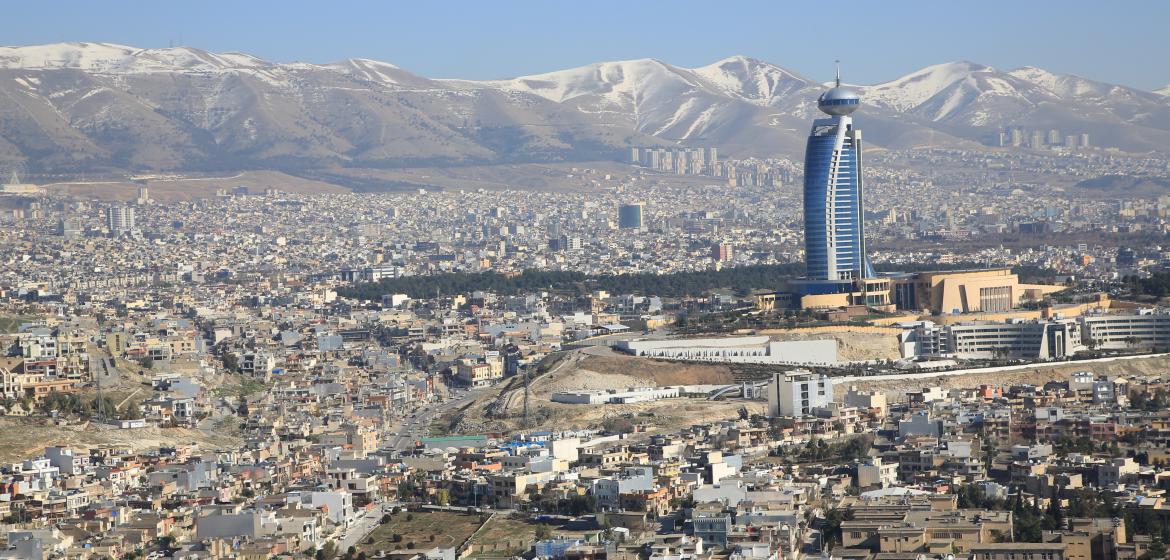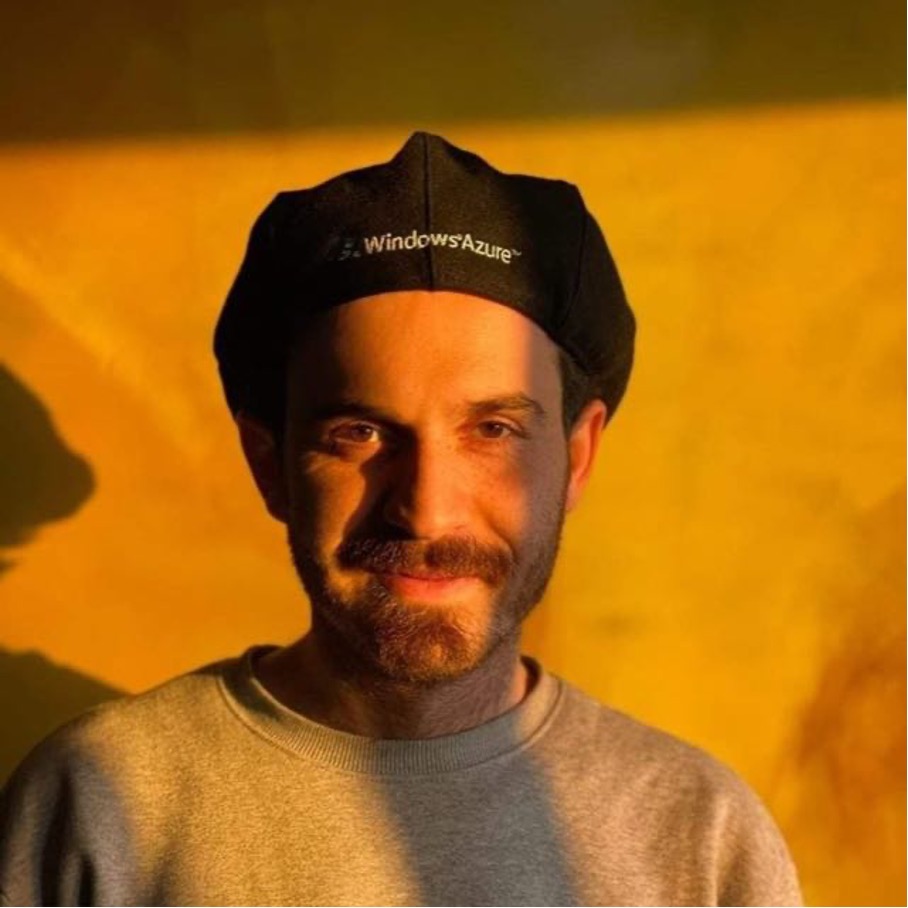In his collected poems “Now A Girl Is My Homeland” (2011), Sherko Bekas explores the sense of national identity of the youth in Iraqi Kurdistan. According to him, disillusionment with overcome authorities interfere with feelings of belonging.
Sherko Bekas (1940 – 2013), a renowned Kurdish poet and former Minister of Culture in the Kurdistan Region of Iraq, expressed his disillusionment and disappointment with the political situation in Iraqi Kurdistan in his last collected poems, “Now a Girl is My Homeland”, in 2011. Despite the author’s involvement as a Peshmarga fighter in Iraqi Kurdistan and his patriotic Kurdish poetry, Bekas resigned from the government after less than two years, citing its failure to address the Kurdish issue adequately. The poem depicts this shift in perspective, as the first-person narrator now prioritizes a girl over the homeland itself. It serves as a poignant reflection on the complexities of identity and the disappointments faced by the Kurdish people.
The history of Kurdistan and national statehood
The history of Kurdistan is a chronicle marked by darkness and suffering. After the First World War, when the concept of nation-states was exported from Europe to Western Asia and North Africa, the Kurdish territory was divided among Iraq, Turkey, Iran and Syria, leaving the Kurds perpetually struggling to maintain their existence as an ethnic minority in their respective state.
In the early 1920s, revolutions and uprisings began and eventually resulted in the establishment of three separate self-proclaimed Kurdish states: the Kingdom of Kurdistan in Iraq (1921-1925), the Republic of Ararat in Turkey (1927-1931) and the Republic of Mahabad in Iran (1946-1947). Later, two autonomous self-administered regions were established: the Kurdistan Region of Iraq (KRI) since 1991 and the Autonomous Administration of North and East Syria (AANES), also known as Rojava, since 2013. Despite campaigns of Arabization, Turkization and Iranization, Anfal campaign and chemical bombardment, the Kurdish people have resisted oppression and nationalist agendas to assimilate or erase them. Over the years, many Kurdish authors, musicians, singers, poets, and creative individuals have joined the Kurdish Liberation Movement (this term had been introduced to the nationalistic rhetoric during the 70s and had been used by Masoud Barzani, President of PDK to name the whole struggle of KRI people since the 50s).
The Kurdistan Region in Iraq: a semi-state entity
As regards the creation of Iraqi Kurdistan, Kurds rose up against the Baathist regime in 1991, driving them out of northern Iraq and paving the way for a de facto autonomous administration in three major Kurdish-populated cities. This marked the initial step towards the creation of a Kurdish semi-state entity in the region. Despite the civil war that followed during 90s and the division of the Kurdish region into two administrations, the Kurds managed to sustain their de facto self-governance in Iraq for 15 years, until 2005, when the Iraqi constitution recognized the Kurdish Region as a constitutional entity within the frame of the Iraqi federal state.
In the last 32, a Kurdish sense of belonging in KRI to their first officially recognized [also de facto] political entity in over a century has emerged. Sherko Bekas is considered one of the first writers/public figures to illustrate his feeling of national belonging.
Now A Girl Is My Homeland
Here it comes, you lovers, here it comes on its own,
It comes with the clothes of autumn… here it comes!
It comes with 19 yellow years
With 19 dark lights and
With 19 green wounds…
…It is poem of the wind of some wounds
On the streets and from your houses.
A very heartbroken wind
A disappointed rain and
An anxious book from its language…
In the first lines of this poem, Sherko Bekas employs color metaphors to highlight the impact of political parties on the Kurdish youth in Iraq. According to him, they are filled with anxiety, heartbreak, and disappointment due to shattered hopes and false identities imposed upon them. The colors green and yellow represent the flags of the Patriotic Union of Kurdistan and the Kurdistan Democratic Party, respectively, which, according to Bekas, are responsible for these feelings, as they drove the Kurdish people in Iraq into the most bloody civil war of 20th century.
Thus, Bekas reveals that the poem is not solely a product of his own anxiety and personal disappointment. Instead, it emerges from the collective experiences of the Kurdish people, it originates from the streets and their houses. The poet conveys that even in seemingly ordinary moments, such as walking on a street or reading a book in a library, one can sense the wounded souls, broken hearts, and overwhelming disappointment. The wind carries a sense of heartbreak, raindrops evoke feelings of disappointment, and even books seem alienated from their own language. The poem raises questions about the source of these emotions and the pervasive sense of dissatisfaction.
Bekas experiencing the decline of nationhood identity belonging in Kurdistan
In his work, Bekas contemplated his identity and what it meant to be part of the Kurdistan Region of Iraq. He illustrates this introspection by portraying himself as various elements like a young Kurdish person named Kameran, the Bulbul (nightingale), femininity, a chair, a cat, justice and etc. Each persona represents a story of misery and disappointment. For instance, through the character of Kameran, a sense of despair is conveyed.
I’m Kameran,
The first physical and stuck characteristic
To me,
Is my name!
Again as yesterday and a day before yesterday and
Last and a year before last year,
This is another iterative day of mine
(…)
Unwillingly … Unwillingly
Pushing my boredom
Continues
(…)
A few wrinkled thousands [Thousand Iraqi Dinars, Author's note]
Are in the pockets of a sad trousers of mine…
Sherko Bekas depicts the daily life of Kameran, who is grappling with an identity crisis and surrounded by melancholy. Kameran feels that his name, which in Kurdish means “the happy one”, is deceptive, as he is unable to find true happiness and views each day as repetitive and devoid of creativity. Comparing Kameran to Sisyphus to analyze his existential situation, Bekas depicts Kameran's struggle with boredom, which he pushes horizontally like a shopping cart in the market instead of pushing the stone to the peak of a mountain. This would show that a Kurdish youth is much more absurdist than Sisyphus, as we cannot find any sort of topological differences. The mention of Kameran's sad trousers carrying wrinkled Iraqi money reflects the financial struggles faced by many youths in the Kurdistan Region of Iraq.
A disconnect between political figures and the new generation
Another character, Bulbul, symbolizes the voices which are critical of the Kurdish authorities and the nationalist policies of the Kurdistan Regional Government (KRG). The gardener, who represents those in power in this poem, accuses Bulbul of disrespecting the homeland and labels it a traitor. This reflects the disconnect between the political figures and the new generation who no longer see them as their true leaders. The decline of the opposition party, Goran Movement, further exemplifies this shift in public support in the political establishment. Another figure in Bekas’ poems is Justice, who is afraid to be robbed.
My name is Justice
(…)
As I came to this land
No one knows me and no one sees me and
What is not familiar here is me
(…)
If I don’t be aware of myself
They would robe and kidnap me
They would put on my mask and
Carry my scales and
Go out to people and
Sassily say
We are not only Justice
But a new up-coming god of this country!
Bekas associates Kurds’ anxiety and melancholy with a sense of deep grief and compares the feeling to a cursed flower or a bird trapped in a cage. He questions whether the Kurds brought these existential conditions upon themselves and instead points to the political authorities, who he deems responsible for their suffering. In another part of the poem, the situation of the Kurdish people in Iraq is compared to being trapped in a stinky pond. Bekas describes how he feels like a broken mirror or discarded waste, reflecting his absurdity and degradation, which the homeland, represented as a vacuum cleaner, cleanses him daily in the face of careless history.
To Bekas, the Kurdish homeland is masculine
Sherko Bekas' depiction of Nîshtiman, which means “homeland” in Kurdish, is rooted in its conceptualization as a place of residence and a symbol of identity. Nîshtiman cobined of two parts; Nîsht which means residing and man is possessive adjective pronoun for the plural second person, which gives a broader meaning of our residence. This conceptualizes distinguishing Kurds from other peoples and fostering a distinct identity. From the 1920s to 1991, Kurdish nationalism thrived, which can be seen in the growth of the Kurdistan Liberation Movement and the proliferation of Kurdish cultural expressions like poetry and songs. Nationalistic education, including anthem recitations, became ingrained in the upbringing of generations in Iraqi Kurdistan during this time. Bekas indirectly conveys negative aspects of Nîshtiman, but also highlights its significance through Kameran's experience in Sulaymaniyah city in KRI.
I was standing on the Seholleke Street,
Suddenly, Nîshtiman, with his bright reddish hat,
With the beard and mustache advertising and masculine rooster-like comb,
With his threatening medals on his chest,
With his sword of Ey Reqib,
Having fearsome-eyed militants behind,
Came to me and shake hands with me, using two fingers.
He put his hands into the pocket of prideful archive,
Giving me a new national anthem of this day.
Nîshtiman is depicted as a ruthless and proud military general and thus symbolizes the Kurdish experience of the harsh struggle for freedom from the Baathist regime. This general manifest the partisan fighters in the mountains and later transitioned into positions of power and governance in urban areas of Kurdistan, maintaining their military attire and demeanor. In Sherko Bekas' imagination, Nîshtiman does not exude love and peace but rather power, emphasizing masculinity with a comb-like mustache and beard. The general seeks to instill fear and assert his authority, highlighting his medals as proof of his fierce combat.
Nîshtiman lacks consideration and sympathy towards others
Despite Bekas’ loyalty to national symbols and the protection of the nation, expressed through the anthem "Ey Reqib", which challenges Kurdish enemies, Bekas criticizes Nîshtiman for his lack of consideration and sympathy towards others. Rather than fostering new ideas and engaging the next generation in civil activities, the general perpetuates a sense of pride in the past, gifting them with new national anthems from Nîshtiman's old archives.
You, Nîshtiman!
You, the man from the high towers
Of arrogance in your head looking down
And even for once, you don’t come down
To the mass of wounds and the autumn
Of all of these waiting pains! [In order to] have a walk long as the length tunnel of misery and pain of people.
Nîshtiman is portrayed as an arrogant figure, disconnected from the people's struggles and pain. Thus, the Kurdish people are neglected and left to suffer without proper governance or attention. Bekas criticizes Nîshtiman for not empathizing with the misery and exhaustion experienced by the people. Additionally, he addresses the patriarchal mentality in Iraqi Kurdistan during the last 30 years. This mentality would be more apparent due to the women killing or suicides statistics because of social issues, recording 73 cases only in 2022, and quota system in the parliamentary elections securing seats for female members. To illustrate women’s perception of Nishtiman, Bekas includes feminine elements in the poem.
Good Evening!
My name is women clothes, What Nîshtiman is embarrassed of is
Wearing me!
This masculine history. This Fatherland of moustache
Even for once, didn’t put me under the sunlight
Never put me besides a spring, or close to a glass of flower perfume
But those who put me on were vacuum
And cooking pot and garbage bin.
Those which clothes me, were the bodies of strangeness
And lonely and pain.
And those which gave me to them were silence, locks, sticks and whip cracks,
And clothes of misery.
My name is women clothes,
Who is not aware of me and
Does not listen to my screams,
Is the deaf ear of Nîshtiman
Thus, the poem sheds light on the gender disparities and marginalization of women in the Kurdistan Region of Iraq. It portrays Nîshtiman as a male-dominated entity that suppresses the role of women in society. In Kurdistan, female representation in politics, economy, and education is lacking, with few women in ministerial and parliamentary positions. While there has been progress in women's participation in the workforce, cultural barriers still hinder their full financial independence.
Critique of ongoing male dominance under Kurdish rule
Bekas portrays a Kurdish mentality that confines women to the domestic sphere, perpetuating a history of male dominance. The poem acknowledges the prevalence of violence against women and alludes to the objectification of women in religious contexts. The figure of Nîshtiman remains ignorant of women's experiences and dismisses their voices.
Good evening, I’m Femininity!
My entire body is formed of
Guilt and nudity issues!
…
Nîshtiman spits at me!
Sherko passed away in 2013 in Sweden. Until his death, he was accompanied by many concerns, anxiety and pessimism regarding the existing Kurdish identity. In his testament, he wrote: “I don’t want to be buried on any known and famous hill, but I want to be buried in Parkiy Azadiy [A well-known park in the middle of Sulaimaniyah, which was used to be a military base, author’s note] with the monuments of martyrs of 1963 [A monument of the youths being killed by the Iraqi regime in 1963 due to the starting point of Kurdish struggle, author’s note]”. Moreover, Bekas expressed his will to stay, even after his death, among the men and women of his hometown, with the music, song, dance, and the clubs of Sulaimaniyah.
The poems here are translated to English by the author.





















